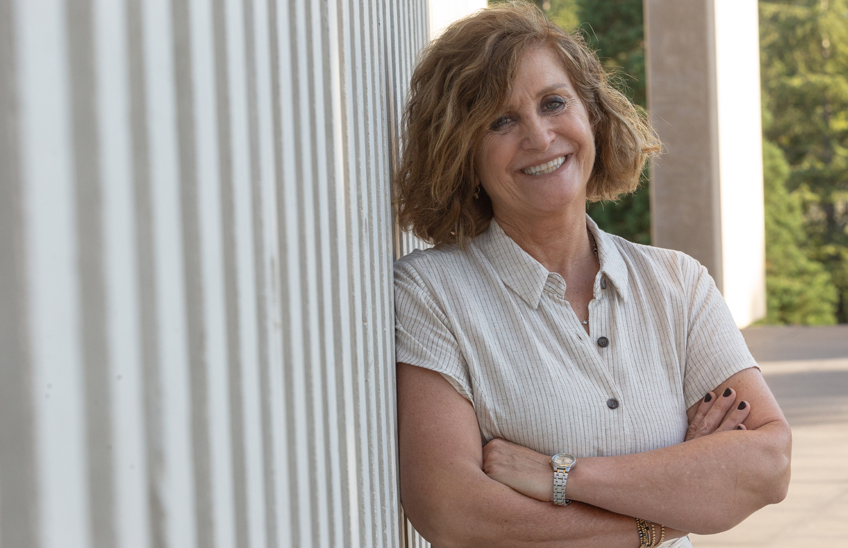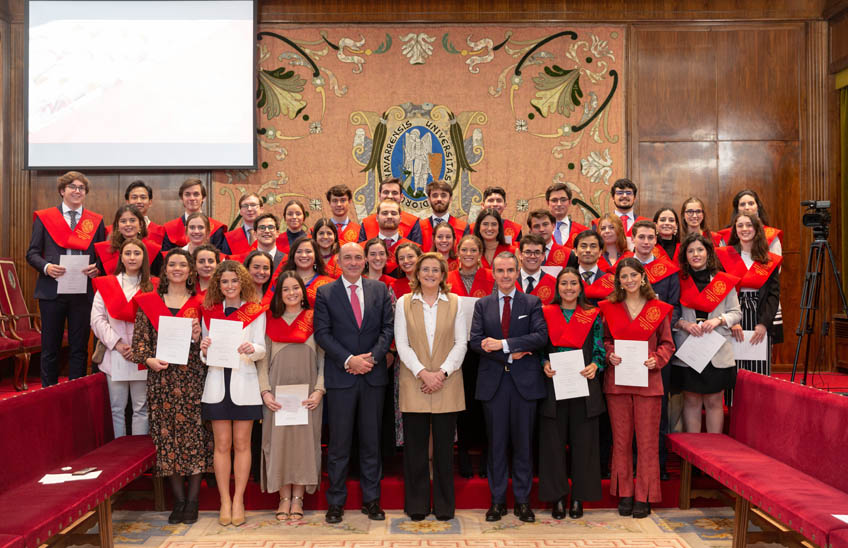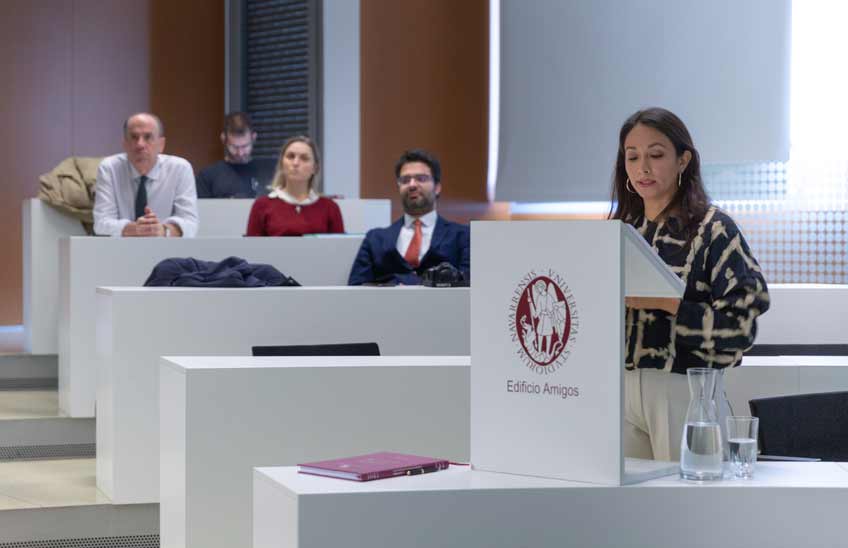"Happy people take care of being happy," says psychologist María José Soler at the University.
To achieve emotional well-being, he advised cultivating positive emotions and relationships, and developing "flow" spaces, as well as instilling in young people values that remind them that "I am more than my success".

19 | 09 | 2023
Keeping a diary in which to write down the good things that have happened during the day, developing 'flow' spaces or making volunteer activities are some of the tools that we can put in internship to achieve emotional wellbeing. This was explained by María José Soler, PhD in Psychology and director of licentiate degree of Psychology at the University of Montevideo (Uruguay), in a session given to students and professionals, and organized by the Psychology Club of the University of Navarra.
"Pain can be our greatest teacher if we learn to listen to it," he said. He also pointed to several myths about happiness that lead us to consider it the result of circumstances or luck and affirmed that "happy people take care of being happy". In general, people always think "when I reach this goal I will be happy", but they forget that the essential thing to reach it is the attitude and that it is necessary to have a long term dream deadline and then, short term plans deadline to achieve it. "Being happy is a decision. There is no happiness without action," he pointed out.
The expert in Positive Psychology explained that there are different tools to achieve emotional well-being, which are summary in the P.E.R.M.A. theory (Positive Emotions, Engagement, Relationship, Meaning, Accomplishments). The first, talks about fostering a greater issue of positive emotions on a day-to-day basis such as serenity, awe, healthy pride or kindness. "It's something that can be trained. An example is keeping a journal of positive things that have happened during the day and practicing gratitude and evaluation or being able to stop and enjoy the moment in which you are living."
Vital commitment to ourselves
The second element, Soler explained, has to do with living a committed life, with strength, focus and passion for what we do. "We need to acquire a vital commitment to ourselves, which fosters our growth staff, for example, by cultivating interests and developing potentials and strengths of our personality." This allows us to have a "flow" space, a moment in which "the hours fly by, since you are immersed in an activity that you like and challenges you to do it better and better". The expert explained that this habit also fosters positive emotions that help to "broaden the mind, increase proactivity and creativity, and greater transformation".
Equally important, he noted, is establishing positive relationships with others. "We need to be able to be authentic, and we will only be so with deep and intimate relationships where there is emotional interdependence so that we can trust, open up, be authentic and vulnerable, establishing supportive and cohesive relationships that will make us grow as people."
The last point of the PERMA theory appeals to be aware of our personal strengths and work on them with effort and perseverance until they become virtues that characterize us and promote satisfaction for the achievements we have reached. "At this point we will feel that we have managed to find these paths to well-being, which will make us feel full people."
Dr. Soler, author of the book Live Well, Be Happy, stressed that emotional well-being encompasses happiness. "We cannot ask momentary pleasure for lasting happiness. Well-being has peaks of positive emotionality and moments of effort that are not necessarily pleasurable, but rewarding." Well-being, he said, encompasses several dimensions: it is related to being clear about what our purpose is and with virtue. "Virtue requires growth staff, perseverance in what we consider good and true. It is something that costs us, but that we choose because we believe in the person we want to be and we work to live that way."
Mental health prevention for our youth
"Neither silence nor taboo," said the psychologist when asked how to prevent the increase in cases of anxiety and depression among our young people. Soler emphasized that from the educational centers "it is necessary to destigmatize mental health problems" and generate spaces where we can freely express how we feel.
In the same way, he appealed to reflect on the fundamental values in our environment and society. "We live in a demanding society in terms of success, performance, social positioning... and we need to feel supported by a network of human containment. We need to know that there are other more transcendent, spiritual values that remind us that 'I am more than my success', because they help to sustain us when we feel that the demands of our environment demand too much from us".
The session 'Live well, be happy. Pathways to emotional well-being. Tools and practical contributions from Positive Psychology" is part of the project Health and Well-being of the Strategy 2025 of the University of Navarra.




